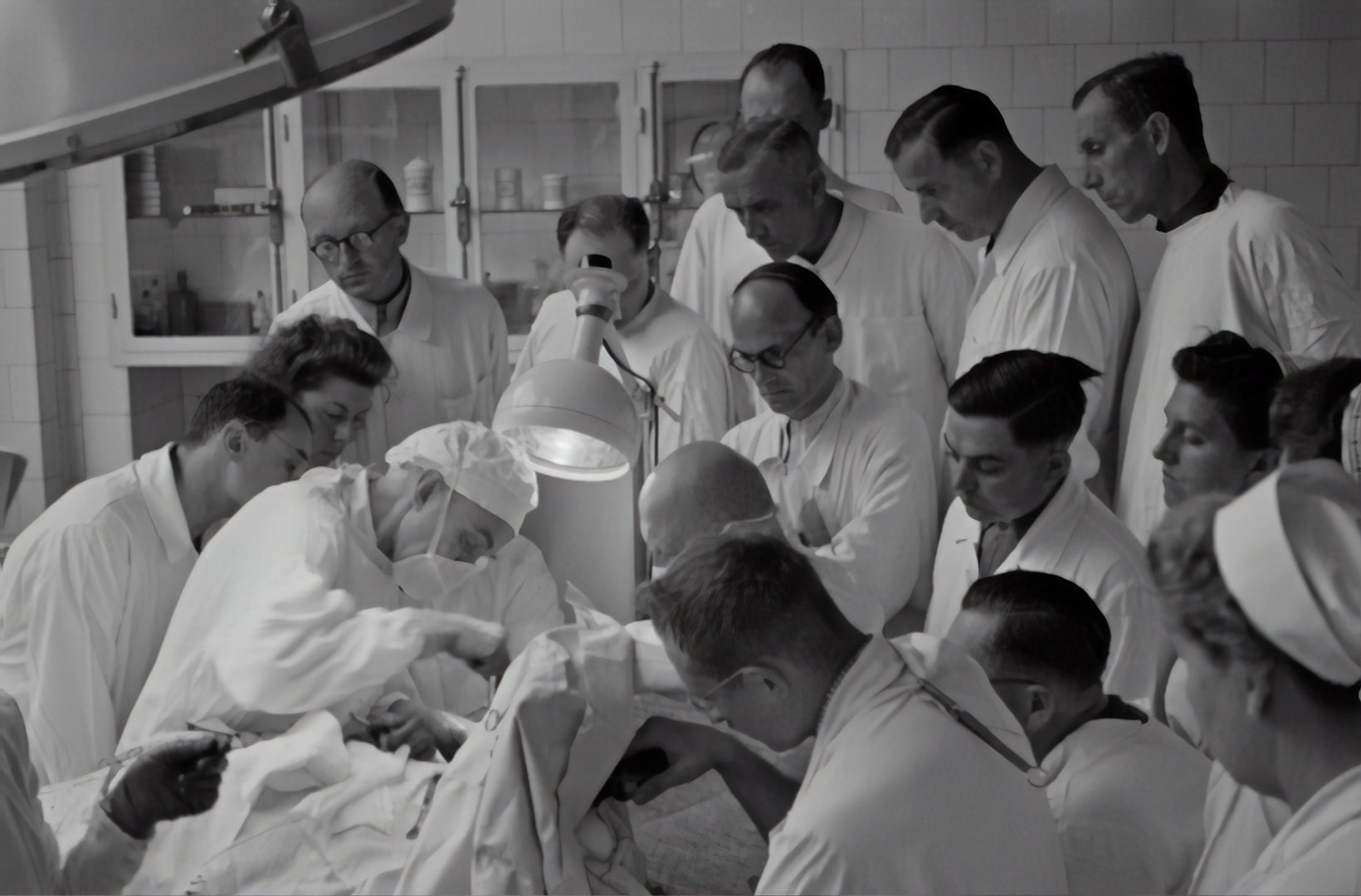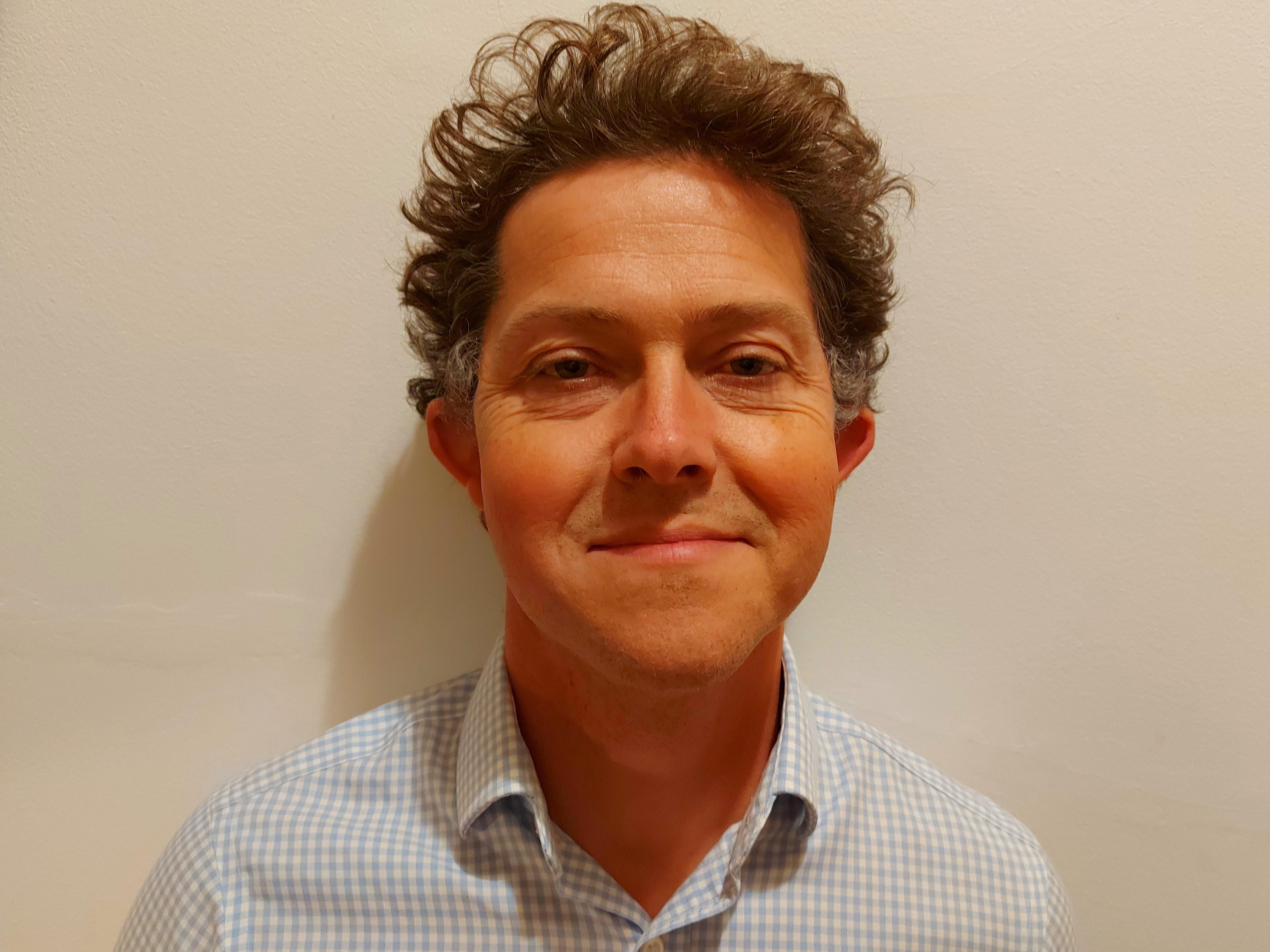Mr Kirkby-Bott is happy to consult on any stage of diagnosis or treatment for this condition
Graves' disease: An overactive thyroid
Surgery is one of two treatments for recurrent disease. Mr James Kirkby-Bott explains

Most overactive thyroids are due to an autoimmune disease called Graves' disease. It affects women more than men and often affects younger women in their 20s and 30s. Other causes of overactivity include Thyroiditis is it's initial stage before causing an underactive thyroid and Plummer's disease when a nodule in the thyroid is responsible for it's overactivity rather than the whole gland.
What Symptoms does Graves disease cause?
It makes you feel on edge and anxious, As the metabolic rate increases weight loss sometimes occurs. It can cause a racing heart - palpitations, headaches. Swelling of the eyes so they stick out is sometimes seen in this condition. It can affect eyesight if left untreated.
How is Graves disease diagnosed?
On blood tests. A simple blood test will show a low TSH and a high free T4 and/or free T3. From this a further test to look for the responsible antibodies is performed. TPO antibodies can be raised in thyroiditis or Graves' disease. But the Thyroid receptor Immunoglobins are diagnostic of Graves' disease. If these are raised and your thyroid is overactive Graves' is the diagnosis. If you have an overactive thyroid and a normal Thyroid receptor immunoglobulin then you may have Plummer's disease and an ultrasound and Thyroid uptake scan can show if a single part of the thyroid is responsible. Eye swelling can affect some. it's action is due to the thyroid receptor immunoglobulins also affecting the muscle of the eye orbit. It only affects a few sufferers of Graves' disease. To treat this disease you need to have had thyroid surgery before any eye surgery.
Treatment for Graves disease
Medical treatment with anti thyroid drugs
Examples of anti thyroid drugs are Carbimazole or Propothiouracil can inhibit the thyroid gland. You either titrate the dose to the thyroid function or completely block the thyroid and give Levothyroxine as well as the anti-thyroid drug. Initial treatment is for 6-12 months. At this point it can be stopped and hopefully it doesn't recur. If it does then these medicines can be tried again for 18+ months. Propanolol is a drug that inhibits the thyroid hormones affect on the heart and directly affects thyroid hormone in the cells too. This is usually prescribed with these medicines for symptom relief. The anti-thyroid medication can have serious side effects in some and stop the bone marrow from producing cells when needed. For this reason it is not used long term and if you feel unwell whilst taking it you should have a blood test known as a full blood count. It can also cause fetal malformation and it is important to use this drug with effective contraception to avoid pregnancy.
Radioactive Iodine
This is used by some patients when stopping medicines causes a relapse. It is a single dose of a radioactive Iodine. Iodine is predominantly used by the thyroid so it all ends up in the thyroid causing a very selective destruction of the thyroid gland. The size of response is dose dependent. Recurrent disease is a potential complication. In addition to this, the tear gland, sweat glands and salivary glands also take up a bit of iodine and be be affected by this treatment sometimes causing - dry skin, dry eyes and a dry mouth. It only reduces the size of a goitre by a small amount (approx 25%) so won't treat a co-existing goitre. After treatment you remain 'radioactive' for a period of time. This means not being able to try and fall pregnant for 6 months after treatment and also not being around small children. It can also have a significant negative impact on small pets such cats and small dogs. Despite these inconveniences it is safe and can be a good choice for those not wanting to conceive or having to look after young children. This can exclude a significant proportion of women affected by Graves' disease. Thyroid function is replaced by a daily dose of Levothyroxine in most cases. Surgery is possible or a 2nd dose of radioactive iodine is possible if treatment fails.
Thyroid Surgery
Total Thyroidectomy (as known as partial thyroidectomy or thyroid lobectomy) is the surgical treatment of choice. It removes all the thyroid tissue so the disease cannot recur. You would become reliant on Levothyroxine to replace your lost thyroid function for life. The surgery requires an overnight stay in hospital. Pre surgery I prepare all Graves' patients with a 12 day course of Potassium iodide drops taken in water or milk three times a day. It can taste strange but it's effect is very important. Graves' disease has the effect of making the thyroid gland and surrounding structures very prone to bleeding significantly - it feels delicate like a blancmange and easily bleeds. The volume of blood loss is never high but it can seriously reduce the surgeons ability to see the nerve to the voice box and the very fragile parathyroid glands with even more fragile blood supply. This makes thyroid surgery for Graves' disease prone to complication.
More information on the risks of thyroid surgery can be found here.
By giving Potassium iodide for the 12 days pre-surgery the thyroid is less densely filled with blood vessels and becomes much firmer so safer to handle and remove without any bleeding. The reduced level of TSH pre-surgery makes the bones thinner and they hold less calcium. Once the thyroid gland is removed this effect is immediately reversed and the bones take on a lot of calcium from the blood to replace what has been lost due to having a low TSH - just at the moment the parathyroid glands that regulate this are bruised and often are not working fully for the first 7-10 days post surgery. This makes low calcium after thyroidectomy for Graves' disease very common. Pre surgery I like to replace vitamin D as this is usually relatively low in UK patients. Doing this helps to modulate the bone's response to parathyroid bruising or damage and help prevent symptoms of a low calcium post surgery. This replacement of vitamin D and pre-op preparation with Potassium Iodide helps to significantly reduce the risk of voice change and duration of any low calcium symptoms perceived. Some of my biggest impact clinical research has been on the role of vitamin D in thyroid function.
My surgery outcomes can be found here
